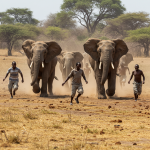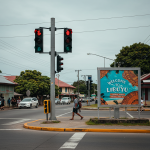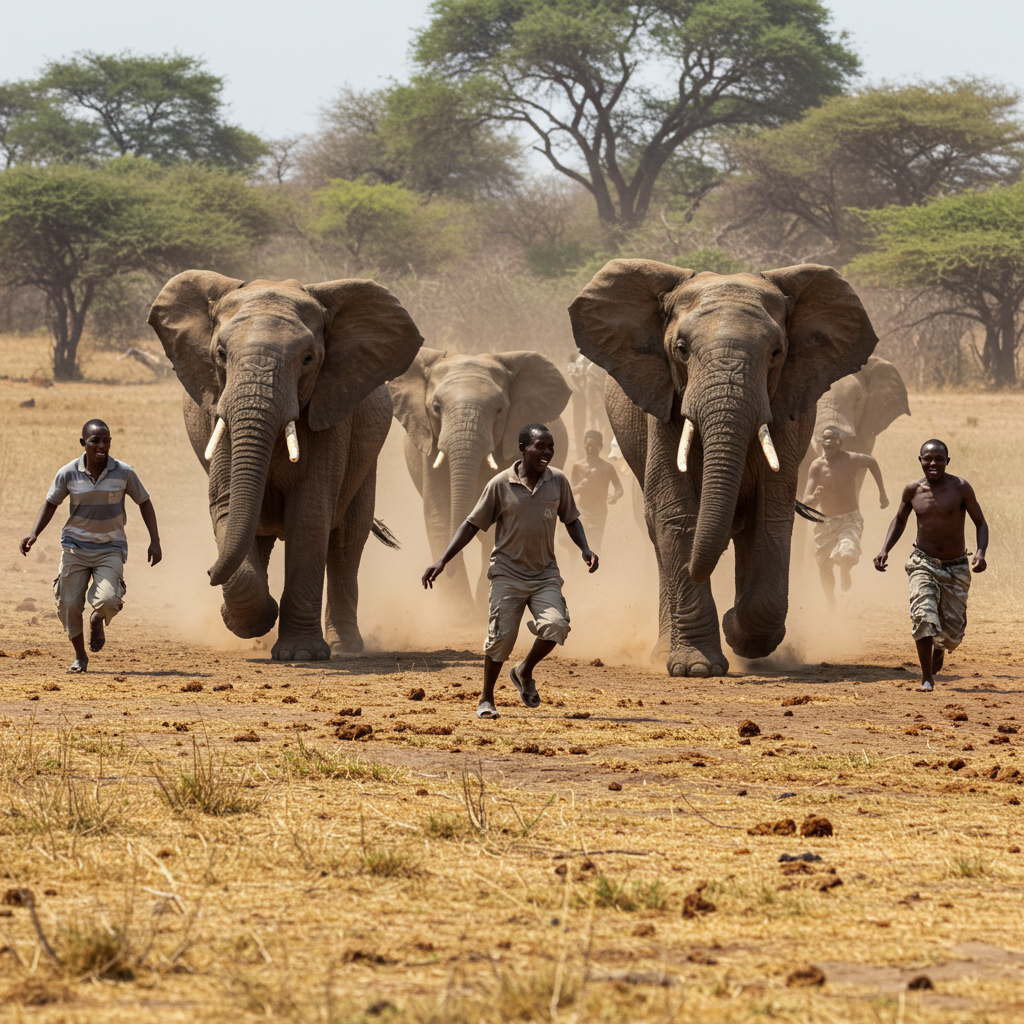Livingstone Residents Say ZAWA Has Failed to Control Elephant Encroachment
Livingstone, Zambia – As nights fall around the edges of Mosi-oa-Tunya National Park, many residents of Livingstone say they no longer feel safe. Elephants are wandering into villages, destroying crops, injuring people—and locals say the Zambia Wildlife Authority (ZAWA) has not done enough to stop it.
A Growing Threat
Over recent months, there has been a spike in human-elephant conflict across Livingstone and its outskirts. Reports from Simoonga, Nakatindi, Dambwa South, Kazungula, and other wards describe elephants entering homes, trashing gardens, trampling fences—and worse, causing injury or even death.
One man, Dumisani Lukhele, was attacked on his way to church. He survived, but was seriously injured. ZAWA reportedly killed the elephant involved, saying it had been wounded by poachers—yet the incident left deep scars
Frustration with ZAWA’s Response
Residents say promises made by ZAWA are falling short:
-
A wire fence promised around parts of the park has barely seen progress—pole holes were dug, but nothing more
-
Physical barriers, where they exist, are damaged or broken. The fenceline in many places is ineffective because it is vandalized, or simply too weak to keep elephants out.
-
Nighttime patrols are sparse. Some community members say the elephant patrol vehicle or rapid-response teams are under-equipped to cover all affected areas.
-
-
Policy and Livelihoods at Stake
This isn’t just about wildlife—this is about people’s lives and livelihoods:
-
Farmers say their crops are ruined regularly. In Nsinde and Maunga areas, tomato and cabbage gardens—small-scale farms many rely on—have been wiped out by roaming herds.
-
Children and commuters fear traveling at night, when many incidents occur. Some victims are reported to have been intoxicated—those returning from drinking spots—making them more vulnerable.
-
There is no clear compensation mechanism. Those whose homes are damaged or crops destroyed often bear the losses themselves.
The Bigger Picture: Encroachment and Habitat Loss
Conservation experts and local leaders warn that the root causes are deeper:
-
Villages and settlement expansions are encroaching on traditional elephant corridors. Houses and gardens are being built close—sometimes just meters—from park boundaries.
-
During dry seasons, scarcity of water and food in protected areas pushes elephants into adjacent communities.
Green Party leader Peter Sinkamba described recent deaths around Livingstone Game Park as “evidence of policy failure,” pointing out that inadequate fencing, poor land-use planning, and weak enforcement of wildlife laws have made the situation worse.
What Residents Want
From those on the frontlines, some demand clear, actionable change:
-
Effective barriers: Build or repair strong, durable fences; patrol and maintain park boundaries so wild animals cannot easily enter settlements.
-
Better rapid response: Equip and staff 24-hour patrols or human‐elephant conflict teams that can respond quickly when elephants stray.
-
Compensation schemes: Create systems to compensate people whose property is damaged or who are injured.
-
Community inclusion: Engage residents in decision-making, in mapping elephant corridors, in early warning systems.
-
Policy enforcement: Ensure that laws around buffer zones (for example, restricting how close houses can be to park borders) are applied; stop indiscriminate land allocation near wildlife areas.
ZAWA’s Position & Challenges
ZAWA has acknowledged some incidents and in certain cases taken action—removing problematic elephants, offering public safety advice, and supporting community awareness. But in interviews, they also point out challenges:
-
Limited resources: manpower, vehicles, budget.
-
Difficult terrain and the necessity of balancing wildlife conservation with human safety.
-
Legal and logistical hurdles in acquiring and enforcing buffer zones.
What’s Next?
As tensions build, the stakes are high: loss of life, loss of property, loss of trust between communities and authorities. If nothing changes, human-elephant conflict threatens both livelihoods and the long-term welfare of Zambia’s elephant populations.
Livingstone residents say the time for promises is ending—they want visible, meaningful action. ZAWA, along with national and local government, must step up. For many, it’s not just about elephants anymore—it’s about safety, justice, and dignity.
WATCH VIDEO
-










